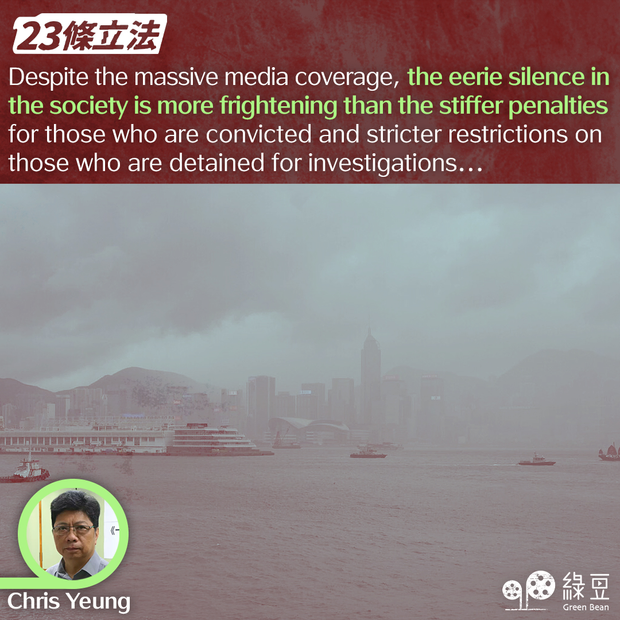Article 23 on fast lane, for better or worse

It was all smiles at the Legislative Council in Hong Kong on Friday last week (March 8) when the legislative process of Basic Law Article 23 was kicked off, followed by fast-tracked scrutiny by lawmakers.
Veteran lawmaker Regina Ip, who resigned from the post of security minister after her mishandling of the then Article 23 bill in 2003 partly led to the historic July 1 march, told reporters it was a day she had waited for 20 years.
Holding copies of the light blue-coloured bill on safeguarding national security, lawmakers took pictures at the Legco Chamber and when talking to reporters.
Making of history
More than 26 years after Hong Kong reverted to Chinese sovereignty, the John Lee administration and the “all-patriots” legislature cannot wait to celebrate the making of history with the imminent completion of the building of a national security legal mechanism after Article 23 becomes law.
Secretary for Security Chris Tang has described the new legislation as a move to “lock the doors and windows” to prevent “burglaries by thieves” for the sake of the security of Hong Kong and the Nation.
Speaking at a meeting with Hong Kong delegates of the National People’s Congress, Chinese vice-premier Ding Xuexiang says fast-tracked approval of Article 23 legislation will help the city shift primary focus to boosting the economy and improving people’s livelihoods.
Completing the legislation as soon as possible, he said, will make the city “safer, more open, and more resilient.”
Ding sits on the Chinese Communist Party’s Politburo Standing Committee and is in charge of Hong Kong affairs.
A lot to be worried
The jubilant mood of the SAR officials and lawmakers is in stark contrast with the downbeat feeling of a sizable segment of the society, of whom many are dispirited by a host of economic and livelihood woes and a climate of fears and unease engulfing the city.
They feel bewildered by the idea that locking the doors and windows of the city is the key to revitalising the economy and easing people’s livelihood difficulties.
Many fear another law on national security may just do the opposite, inflicting more damage to the city’s status as an international financial centre and its freewheeling lifestyles.
Their fears are not unfounded. Foreign governments are concerned about crimes, in particular those relating to collusion with foreign forces, in the proposed legislation.
Vague and broad definitions of “international organisation” and “external force” in the proposed legislation has stoked fears that normal exchanges between Hong Kong people with international bodies may be fraught with legal risk.
For ordinary citizens – and more so for journalists, stiffer maximum penalties and broad definition of the offence of sedition fear further erode freedom of expression in the city.
To them, there is little, if any, to celebrate, but a lot to be worried about.
The eerie silence
The depth of fears and anxieties in some quarters of the society about the damaging impact of Article 23 contrasts sharply with the government’s report on a month-long public consultation on the proposed legislation.
Nearly 90 percent of the submissions they received, the Government said, say they support the proposed legislation.
The finding could be misleading as those who are concerned about the potential legal risk of expressing dissenting views on the government proposals in public consultation may stay silent and not respond at all.
Despite the massive media coverage, the eerie silence in the society is more frightening than the stiffer penalties for those who are convicted and stricter restrictions on those who are detained for investigations if the bill is passed into law.
How another national security law will change Hong Kong is anybody’s guess at this stage. But the way Article 23 is legislated and how different parts of the society react to the process do not augur well for Hong Kong.
In view of the enormity of the city’s economic and livelihood problems, it is inconceivable that an Article 23 legislation could play magic.
Much could be celebrated if the new national security law does not impede the city’s drive to rejuvenate the economy and improve people’s livelihood after it is implemented.
(Image : Shibeman, CC BY 4.0 <https://creativecommons.org/licenses/by/4.0>, via Wikimedia Commons)
▌[At Large] About the Author
Chris Yeung is a veteran journalist, a founder and chief writer of the now-disbanded CitizenNews; he now runs a daily news commentary channel on Youtube. He had formerly worked with the South China Morning Post and the Hong Kong Economic Journal.